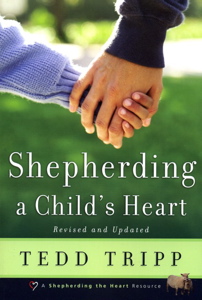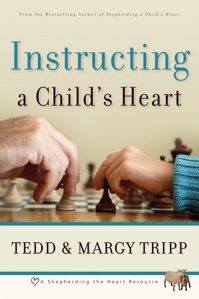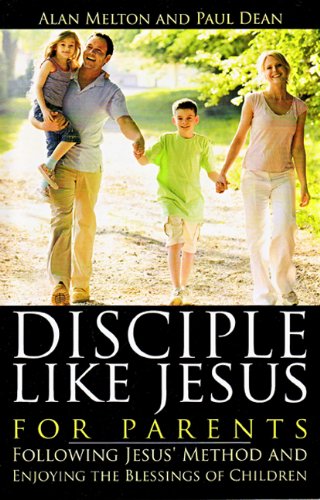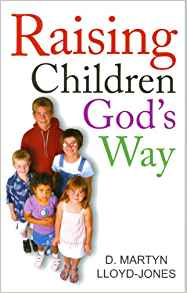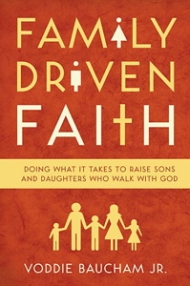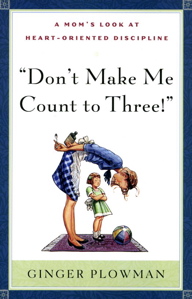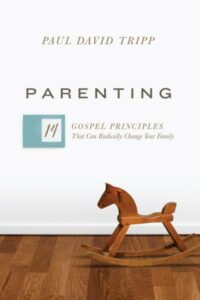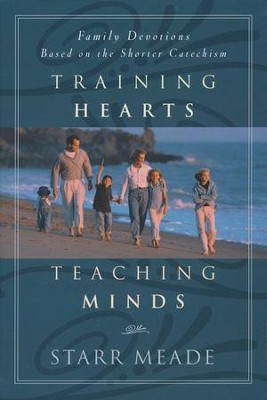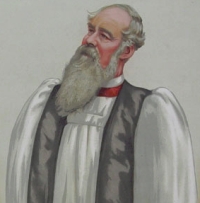 Train up a child in the way he should go; and when he is old, he will not depart from it (Proverbs 22:6).
Train up a child in the way he should go; and when he is old, he will not depart from it (Proverbs 22:6).
I suppose that most professing Christians are acquainted with the text at the head of this page. The sound of it is probably familiar to your ears, like an old tune. It is likely you have heard it, or read it, talked of it, or quoted it, many a time. Is it not so?
But, after all, how little is the substance of this text regarded! The doctrine it contains appears scarcely known, the duty it puts before us seems fearfully seldom practised. Reader, do I not speak the truth?
We live in days when there is a mighty zeal for education in every quarter. We hear of new schools rising on all sides. We are told of new systems, and new books for the young, of every sort and description. And still for all this, the vast majority of children are manifestly not trained in the way they should go, for when they grow up to man’s estate, they do not walk with God.
Now how shall we account for this state of things? The plain truth is, the Lord’s commandment in our text is not regarded; and therefore the Lord’s promise in our text is not fulfilled.
Reader, these things may well give rise to great searchings of heart. Suffer then a word of exhortation from a minister, about the right training of children. Believe me, the subject is one that should come home to every conscience, and make every one ask himself the question, ‘Am I in this matter doing what I can?’
Come now, and let me place before you a few hints, about right training. God the Father, God the Son, God the Holy Ghost bless them, and make them words in season to you all. Reject them not because they are blunt and simple; despise them not because they contain nothing new. Be very sure, if you would train children for heaven, they are hints that ought not to be lightly set aside.
Directive One.
First, then, if you would train your children rightly, train them in the way they should go, and not in the way that they would. Remember children are born with a decided bias towards evil, and therefore if you let them choose for themselves, they are certain to choose wrong.
The mother cannot tell what her infant may grow up to be- tall or short, weak or strong, wise or foolish: he may be any of these things or not- it is all uncertain. But one thing the mother can say with certainty: he will have a corrupt and sinful heart. It is natural to us to do wrong. ‘Foolishness,’ says Solomon, ‘is bound in the heart of a child’ (Proverbs 22:15). Our hearts are like the earth on which we tread; let it alone, and it is sure to bear weeds.
If, then, you would deal wisely with your child, you must not leave him to the guidance of his own will. Think for him, judge for him, act for him, just as you would for one weak and blind; but for pity’s sake, give him not up to his own wayward tastes and inclinations. It must not be his likings and wishes that are consulted. He knows not yet what is good for his mind and soul, any more than what is good for his body. You do not let him decide what he shall eat, and what he shall drink, and how he shall be clothed. Be consistent, and deal with his mind in like manner. Train him in the way that is scriptural and right, and not in the way that he fancies.
If you cannot make up your mind to this first principle of Christian training, it is useless for you to read any further. Self-will is almost the first thing that appears in a child’s mind; and it must be your first step to resist it.
Directive Two.
Train up your child with all tenderness, affection, and patience. I do not mean that you are to spoil him, but I do mean that you should let him see that you love him. Love should be the silver thread that runs through all your conduct. Kindness, gentleness, long-suffering, forbearance, patience, sympathy, a willingness to enter into childish troubles, a readiness to take part in childish joys — these are the cords by which a child may be led most easily — these are the clues you must follow if you would find the way to his heart.
Few are to be found, even among grown-up people, who are not more easy to draw then to drive. There is that in all our minds which rises in arms against compulsion; we set up our backs and stiffen our necks at the very idea of forced obedience. We are like young horses in the hand of a breaker: handle them kindly, and make much of them, and by and by you may guide them with thread; use them roughly and violently, and it will be many a month before you get the mastery of them at all.
Children are weak and tender creatures, and, as such, they need patient and considerate treatment. We must handle them delicately, like frail machines, lest by rough fingering we do more harm than good. They are like young plants, and need gentle watering- often, but little at a time.
We must not expect all things at once. We must remember what children are, and teach them as they are able to bear. Their minds are like a lump of metal — not to be forged and made useful at once, but only by a succession of little blows. Their understandings are like narrow-necked vessels: we must pour in the wine of knowledge gradually, or much of it will be spilled and lost. ‘Line upon line, and precept upon precept, here a little and there a little,’ must be our rule. The whetstone does its work slowly, but frequent rubbing will bring the scythe to a fine edge. Truly there is need of patience in training a child, but without it nothing can be done.
Directive Three.
Train with this thought continually before your eyes- that the soul of your child is the first thing to be considered. Precious, no doubt, are these little ones in your eyes; but if you love them, think often of their souls. No interest should weigh with you so much as their eternal interests. No part of them should be so dear to you as that part which will never die. The world, with all its glory, shall pass away; the hills shall melt; the heavens shall be wrapped together as a scroll; the sun shall cease to shine. But the spirit which dwells in those little creatures, whom you love so well, shall outlive them all, and whether in happiness or misery (to speak as a man) will depend on you.
This is the thought that should be uppermost on your mind in all you do for your children. In every step you take about them, in every plan, and scheme, and arrangement that concerns them, do not leave out that mighty question, ‘How will this effect their souls?’
Soul love is the soul of all love. To pet and pamper and indulge your child, as if this world was all he had to look to, and this life the only season for happiness — to do this is not true love, but cruelty. It is treating him like some beast of the earth, which has but one world to look to, and nothing after death. It is hiding from him that grand truth, which he ought to be made to learn from his very infancy — that the chief end of his life is the salvation of his soul.
A true Christian must be no slave to fashion, if he would train his child for heaven. He must not be content to do things merely because they are the custom of the world; to teach them and instruct them in certain ways, merely because it is usual; to allow them to read books of a questionable sort, merely because everybody else reads them; to let them form habits of a doubtful tendency, merely because they are the habits of the day. He must train with an eye to his children’s souls. He must not be ashamed to hear his training called singular and strange. What if it is? The time is short — the fashion of this world passeth away. He that has trained his children for heaven, rather than for earth — for God, rather than for man — he is the parent that will be called wise at last.
Directive Four.
Train your child to a knowledge of the Bible. You cannot make your children love the Bible, I allow. None but the Holy Ghost can give us a heart to delight in the Word. But you can make your children acquainted with the Bible; and be sure they cannot be acquainted with that blessed book too soon, or too well.
A thorough knowledge of the Bible is the foundation of all clear views of religion. He that is well-grounded in it will not generally be found a waverer, and carried about by every wind of new doctrine. Any system of training which does not make a knowledge of Scripture the first thing is unsafe and unsound.
See that your children read the Bible reverently. Train them to look on it, not as the word of men, but as it is in truth, the Word of God, written by the Holy Ghost Himself- all true, all profitable, and able to make us wise unto salvation, through faith which is in Christ Jesus.
See that they read it regularly. Train them to regard it as their soul’s daily food — as a thing essential to their soul’s daily health. I know well you cannot make this anything more than a form; but there is no telling the amount of sin which a mere form may indirectly restrain.
See that they read it all. You need not shrink from bringing any doctrine before them. You need not fancy that the leading doctrines of Christianity are things which children cannot understand. Children understand far more of the Bible than we are apt to suppose.
Tell them of sin, its guilt, its consequences, its power, its vileness: you will find they can comprehend something of this. Tell them of the Lord Jesus Christ, and His work for our salvation- the Atonement, the cross, the Blood, the sacrifice, the intercession: you will discover there is something not beyond them in all this.
Tell them of the work of the Holy Spirit in man’s heart, how He changes, and renews, and sanctifies, and purifies: you will soon see they can go along with you in some measure in this. In short, I suspect we have no idea how much a little child can take in of the length and breadth of the glorious Gospel. They see far more of these things than we suppose. Fill their minds with Scripture. Let the Word dwell in them richly. Give them the Bible, the whole Bible, even while they are young.
